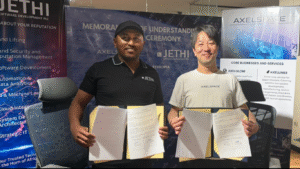Modern businesses across luxury, lifestyle, and outdoor markets are reshaping their industries by blending tradition with innovation. This balance allows brands to honor heritage and craftsmanship while embracing new technologies and sustainable practices that appeal to today’s discerning consumers.
Luxury homes in places like luxury homes san miguel de allende exemplify this trend, combining classic architectural styles with smart home technology and eco-friendly features. These properties reflect a fusion of timeless elegance and modern convenience, meeting the demands of clients who value both cultural authenticity and innovative living.
In outdoor markets, businesses are also advancing by merging traditional quality with innovations like AI-enhanced design and sustainable materials. This approach respects the past while addressing contemporary preferences, making luxury and lifestyle offerings more relevant and accessible without sacrificing exclusivity.
Redefining Luxury and Lifestyle Through Tradition and Innovation
Luxury and lifestyle brands are evolving by uniting time-honored techniques with modern advances. This transformation values skillful craftsmanship, meaningful storytelling, and deeply personalized experiences to meet the sophisticated expectations of today’s buyers.
Heritage and the Art of Craftsmanship
Established luxury brands build on a foundation of heritage and meticulous craftsmanship. Companies like Simply Whispers emphasize handcrafting details such as earrings in ways that honor traditional methods while integrating novel materials or subtle design innovations. This blend preserves authenticity and quality.
Craft-oriented brands in outdoor markets, including TenPoint with their precision crossbows, also combine expert skills with technological improvements, reinforcing exclusivity. The commitment to craft ensures each product carries a unique story and value that cannot be mass-produced.
Exclusivity, Authenticity, and Storytelling
Exclusivity in luxury no longer depends solely on rarity but on authentic narratives. Luxury brands utilize storytelling to cultivate emotional connections, highlighting the origin, craft process, and legacy behind products.
Consumers increasingly seek genuine, transparent experiences that affirm their identity. Brands craft compelling stories about heritage and innovation, positioning items, such as limited-edition jewelry or precision equipment, as symbols of status and individuality for the discerning luxury buyer.
Personalization and Hyper-Personalized Experiences
Personalization now extends beyond customization to hyper-personalized experiences. Luxury firms tailor offerings based on detailed buyer preferences, blending technology with human insight.
This includes bespoke product designs and interactive services that adjust environments or features automatically. The result is an exclusive lifestyle experience where customers feel uniquely understood and valued, elevating their relationship with both brand and product.
Innovation-Driven Transformation in the Modern Outdoor and Luxury Markets
Modern luxury and outdoor markets are evolving through targeted use of advanced technologies, sustainable approaches, and flexible business models. These elements reshape consumer experiences, supply chains, and brand strategies, aligning exclusivity with accessibility and environmental awareness.
Digital Transformation: AI, Augmented Reality, and Blockchain
Artificial intelligence is central to personalizing luxury and outdoor consumer experiences. Brands use AI for data-driven segmentation, enabling highly targeted marketing and improved inventory management. Augmented reality (AR) enhances product interaction, allowing consumers to visualize luxury items or outdoor gear in real-life settings before purchase.
Blockchain technology adds transparency and security, especially important for the authentication of high-value products. It counters counterfeiting by providing immutable digital certificates, boosting trust in resale markets. Social media integration supports real-time engagement and live selling, which has grown in luxury sectors as a bridge between exclusivity and broad reach.
Sustainability, Eco-Friendly Practices, and Environmental Impact
Sustainability is increasingly embedded across the luxury and outdoor industries. Brands adopt eco-friendly materials and transparent supply chains to reduce their environmental footprint. Partnerships with sustainability-driven platforms amplify these efforts, creating verified impacts in resource management and waste reduction.
Environmental concerns shape product design and corporate responsibility. Wellness retreats and outdoor experiences linked with nature preservation appeal to consumers demanding ethical practices. This shift affects not just production but also marketing, where storytelling around sustainability builds brand value alongside traditional narratives of craftsmanship.
Article received via email






























